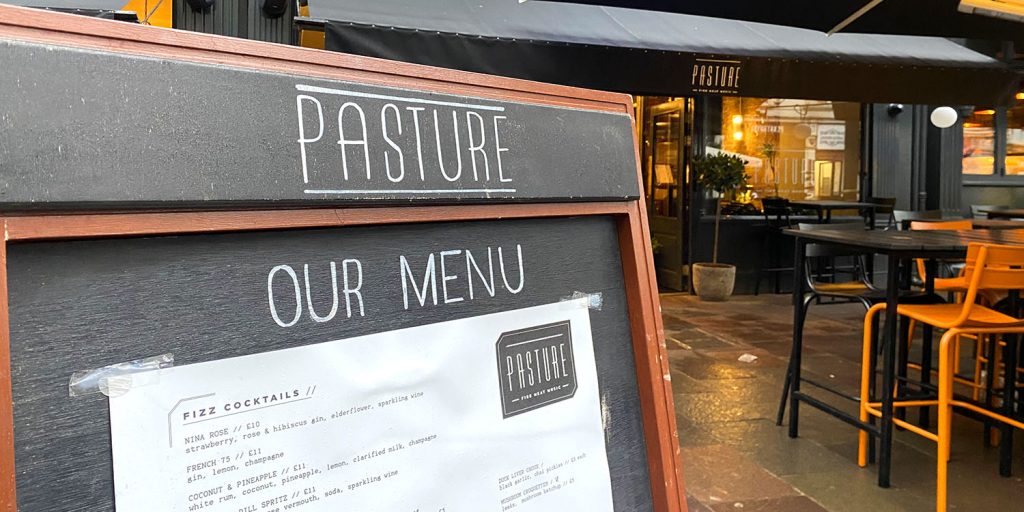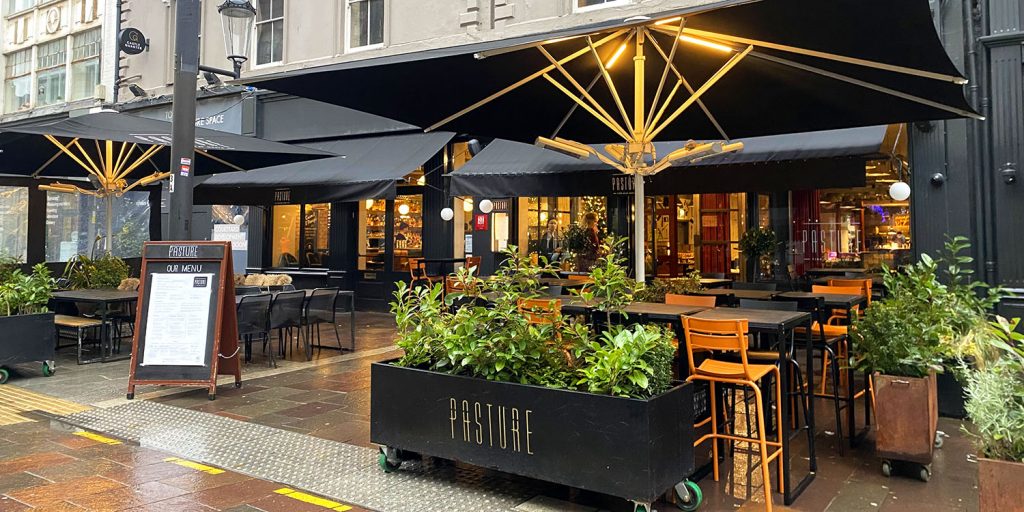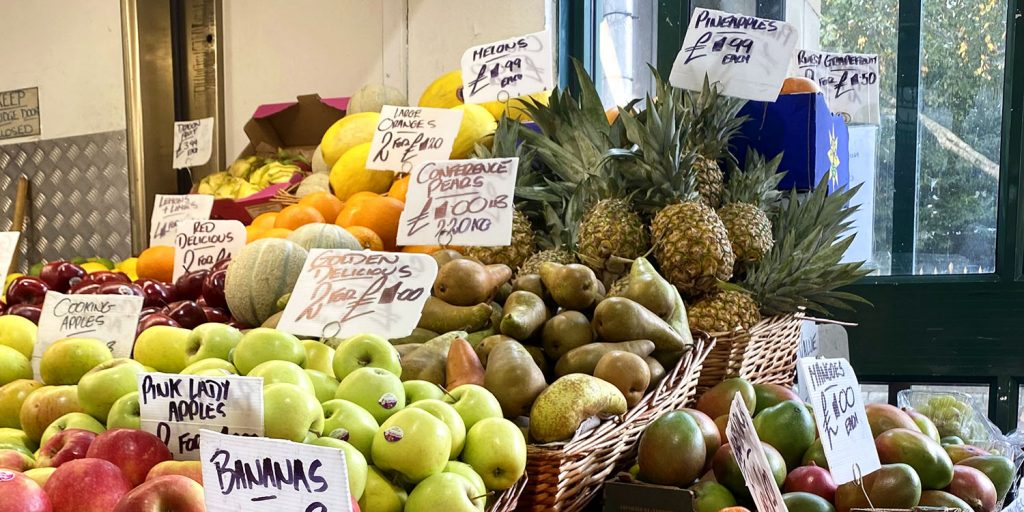To create a stronger tourism identity for Wales, Welsh Government is encouraging hospitality businesses to put more Welsh food and drink on their menus

Wales is renowned for being the land of outstanding natural beauty, magnificent coastline, nourishing Welsh cakes and a vibrant (albeit slightly overwhelming) rugby culture on match days.
But while UK residents made 53.11 million overnight trips to UK destinations between January and June of this year, only 3.79 million of these were to Wales. Jane Cook, owner of HungryCityHippy blog feels there is often a jarring difference between how Welsh locals want Wales to be marketed, compared to what makes it an attractive destination.
“For younger people who want foodie city breaks and exciting things to do, they don’t necessarily know what Wales and Cardiff has to offer these days,” the Canton-based blogger said.
Wales is a cosmopolitan destination, and it’s the food scene, combined with those cultural elements that is really interesting to tourists
Jane Cook, owner of HungryCityHippy blog
In an effort to strengthen the tourism marketing brand of Wales, Welsh Government is investing in food tourism to tell a story of national identity and culture. Hospitality businesses are being encouraged to source ingredients from local farmers and suppliers rather than importing from overseas; increasing the amount of Welsh food and drink on their menus.
Freelance PR consultant Cook says that food and drink is incredibly important to Welsh tourism. “Wales is a cosmopolitan destination, and it’s the food scene, combined with those cultural elements that is really interesting to tourists,” the 37-year-old said.
While a local food culture could attract more visitors to Wales by offering authentic experiences of Welsh culture, it also aligns with Welsh Government’s ambition of creating a “greener nation”. Tourism contributes around 8% to the world’s carbon emissions, and by reducing the amount of food imported from overseas, Wales could significantly reduce its carbon footprint.
Watch this handy explainer below:
Cardiff’s local food culture
To increase the offerings of Welsh food and drink on their menus, hospitality businesses would have to alter their supply chain; switching to local suppliers only.
Kacie Morgan, owner of the blog The Rare Welsh Bit blog says that when choosing somewhere to eat in Cardiff, she tends to look for highly rated independent restaurants which have a local supply chain, “People appreciate knowing where their food has come from nowadays,” she said.
Pearl Costello, the sustainable food places co-ordinator at Food Cardiff says that by sourcing ingredients from local producers and suppliers, hospitality businesses are able to keep transport to a minimum, while keeping money circulating in the local community.
“Reducing the number of steps in the supply chain, and getting to know suppliers directly can increase the opportunity to ensure that the ingredients purchased are produced in a way which is good for the climate and nature,” Costello said.
As the city’s sustainable food partnership, Food Cardiff have published a business toolkit to support hospitality businesses in committing to pledges such as sourcing local ingredients.
Despite the work of Food Cardiff, Cardiff residents claim that they lack confidence when looking to purchase sustainably produced food, with 42.3% stating that there’s often a lack of information provided by businesses on how their food has been sustainably produced.
The problem, according to freelance PR consultant Cook, is that the sustainability space is becoming increasingly crowded with hospitality businesses claiming sustainable practices. “I think one way consumers can evidence whether people are actually doing that much, and also the way that businesses can differentiate themselves from everyone else, is having the external accreditation to prove it,” she said.
The Pasture Restaurant group, a collective of restaurants honouring fire-based cooking and local ingredients have recently received a three-star ‘Food Made Good’ accreditation from the Sustainable Restaurant Association (SRA).
Located on High Street in Cardiff, Pasture are the first independently owned restaurant in Wales to receive the accreditation which acknowledges their sustainable practices; one of which involves sourcing food from local suppliers, and growing their produce on their own farm in Bristol.

Speaking on Pasture’s accreditation from the SRA, Cook said: “There is a cost involved to go through it, but it involves really evidencing all the ways that you’re running a sustainable business, and in turn, makes you stand out from the crowd.”
Survival of the richest
While a greater offering of local Welsh produce could attract more visitors to Wales, many smaller, independent businesses may struggle with the costs required to establish themselves as a sustainable business providing local food and drink.
Visit Cardiff, the official tourism body for Cardiff, claims that it promotes a “dynamic image” by advertising a variety of places to eat, drink and visit in Cardiff. But in order to be promoted on their website, it comes at an annual membership cost of £400.
“Inevitably, cash-rich chains can all afford memberships, but many of the more cash-conscious independents can’t or won’t subscribe,” Cook said.
Alongside this, Morgan recognises that many independents may struggle with the costs of switching to a local supply chain. “It’s important to consider the financial impact this change could have on independent hospitality businesses in Wales.
“With costs on the rise as it is, changing suppliers to source produce locally could mean more expense for small businesses,” she said.
Welsh Government may face a major problem in its efforts to promote Wales as a global tourist destination because of this. While investment into the local food scene could be optimal for visitor growth by offering dishes of Welsh identity and culture, if smaller independents are unable to gain recognition for being a sustainable business providing Welsh produce, tourist destinations such as Cardiff may lose their charm.
Food Cardiff network meet-up:
On the 20th December, Food Cardiff are holding their final network meet-up of the year at The Heathcock in Llandaff. Individuals, organisations and businesses from across the city come together to meet likeminded people, and make connections to help with sourcing locally. Click the hyperlink to find out more, and book a ticket to the event for just £3.

Local food and drink producers in the South Wales area:
- Calon Wen (SA32 8BH): Co-operative of 25 organic family farms across Wales offering a range of organic, and ethically produced products such as butter, milk and cheese.
- Cardiff Distillery (CF11 8TU): Family run bar, restaurant, hotel and distillery producing craft gins, rums, vodkas and liqueurs.
- Banc Organics (SA17 5AF): Organic, nutritious and healthy fruit and veg, locally grown to the highest ethical standards.
- Caws Teifi Cheese (SA44 5JY): Artisan raw cheesemakers in Ceredigion making four types of cheese from un-pasteurised cows milk on site.
